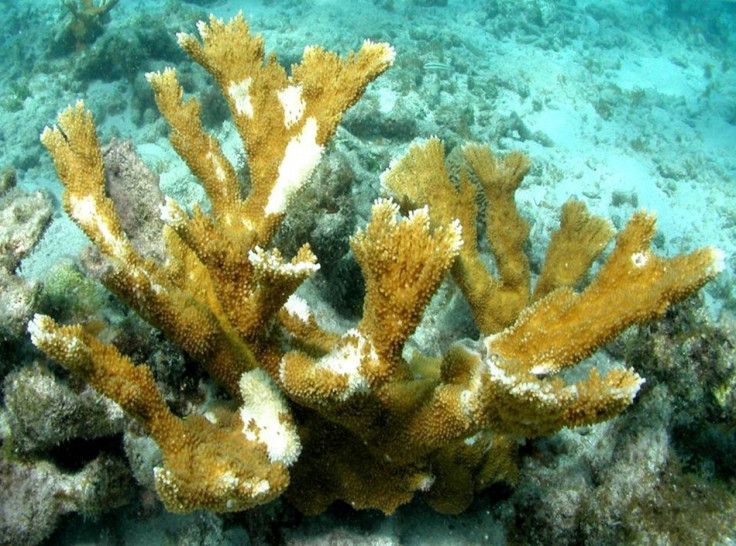Climate Change Affects Coral Reefs Growth

Natural climatic changes have led to the total ecosystem collapse of coral reefs, suggest a new report.
According to a study by the Florida Institute of Technology, climate shifts have stalled the reef growth in the eastern Pacific for 2,500 years.
The stall-out, which began 4,000 years ago, corresponds to a period of dramatic swings in the El Niño-Southern Oscillation (ENSO).
"As humans continue to pump greenhouse gases into the atmosphere, the climate is once again on the threshold of a new regime, with dire consequences for reef ecosystems unless we get control of climate change," said co-author Richard Aronson, a biology professor at Florida Institute of Technology.
For the research, the team of researchers drove 17-foot, small-bore aluminum pipes deep into the dead frameworks of coral reefs along the Pacific coast of Panama and pulled out cross-sections of the reefs. By analysing the corals in the cores, they were able to reconstruct the history of the reefs over the past 6,000 years.
"We were shocked to find that 2,500 years of reef growth were missing from the frameworks," said doctoral student Lauren Toth.
"That gap represents the collapse of reef ecosystems for 40 percent of their total history," Toth added.
When Toth and Aronson examined reef records from other studies across the Pacific, they discovered the same gap in reefs as far away as Australia and Japan.
Toth linked the coral-reef collapse to changes in ENSO. ENSO is the climate cycle responsible for the weather conditions every few years known as El Niño and La Niña events. The timing of the stall-out in reef growth corresponds to a period of wild swings in ENSO.
"Coral reefs are resilient ecosystems," said Toth. "For Pacific reefs to have collapsed for such a long time and over such a large geographic scale, they must have experienced a major climatic disturbance. That disturbance was an intensified ENSO regime."
However, the study suggests that if the Pacific reefs were able to overcome thousands of years of stagnancy then perhaps they will be resilient again, provided we cut down our pollution and over-fishing.
Toth noted that reefs have proven resilient in the past, so the potential for recovery should be good if climate change can be mitigated or reversed.
© Copyright IBTimes 2025. All rights reserved.





















